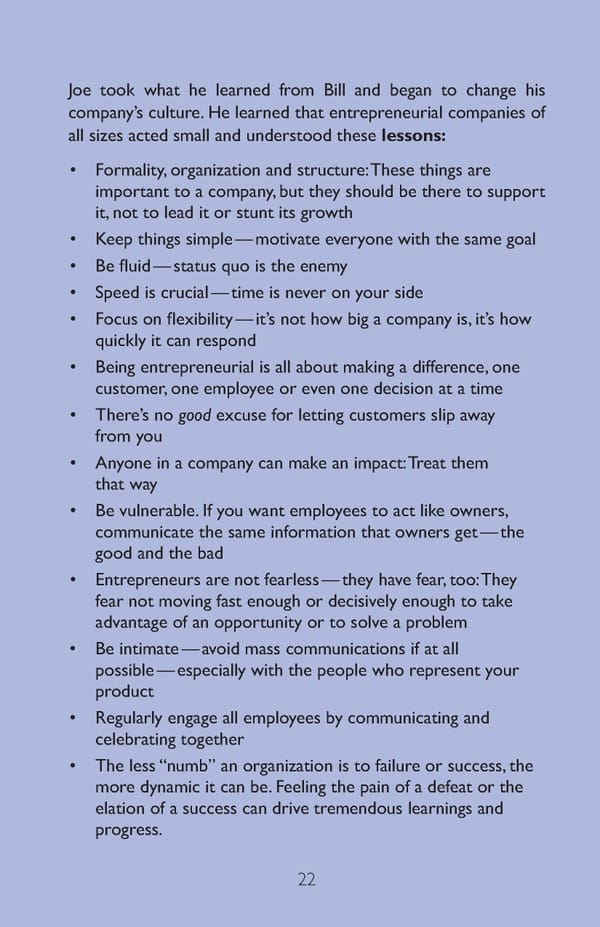Joe took what he learned from bill and began to change his company’s culture. He learned that entrepreneurial companies of all sizes acted small and understood these lessons: • Formality, organization and structure: These things are important to a company, but they should be there to support it, not to lead it or stunt its growth • Keep things simple — motivate everyone with the same goal • Be 昀氀uid — status quo is the enemy • Speed is crucial — time is never on your side • Focus on 昀氀exibility — it’s not how big a company is, it’s how quickly it can respond • Being entrepreneurial is all about making a difference, one customer, one employee or even one decision at a time • There’s no good excuse for letting customers slip away from you • Anyone in a company can make an impact: Treat them that way • Be vulnerable. If you want employees to act like owners, communicate the same information that owners get — the good and the bad • Entrepreneurs are not fearless — they have fear, too: They fear not moving fast enough or decisively enough to take advantage of an opportunity or to solve a problem • Be intimate — avoid mass communications if at all possible — especially with the people who represent your product • Regularly engage all employees by communicating and celebrating together • The less “numb” an organization is to failure or success, the more dynamic it can be. Feeling the pain of a defeat or the elation of a success can drive tremendous learnings and progress. 22
 Story 6 | The Corporate Entrepreneur Page 21 Page 23
Story 6 | The Corporate Entrepreneur Page 21 Page 23